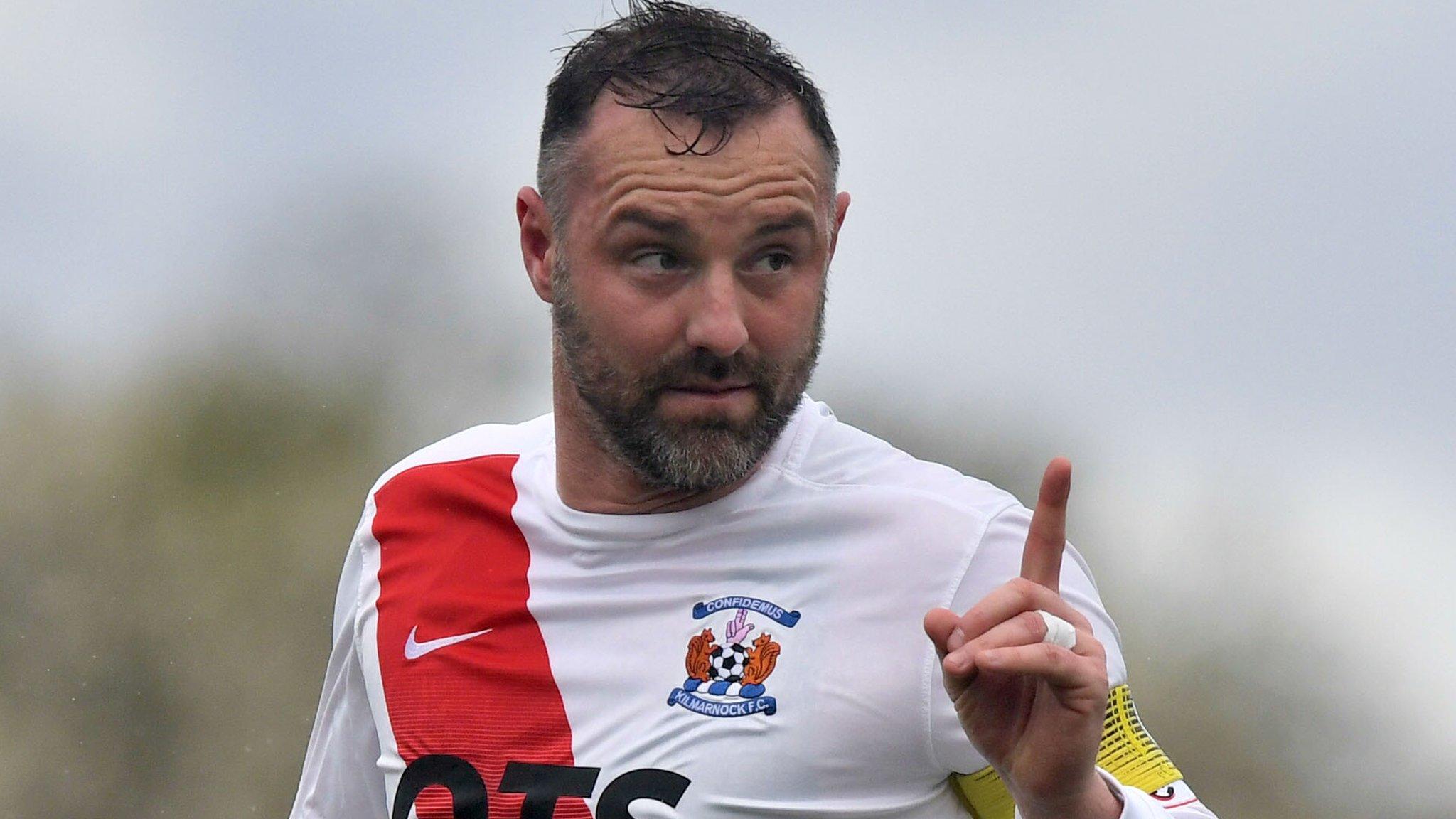Forfar's David Cox wants fans and players to improve knowledge of mental health
- Published
David Cox: It was touch and go if I'd make it or not
A footballer who has tried to take his own life due to an ongoing battle with depression wants better understanding of the issue from fans and players.
Forfar Athletic striker David Cox has struggled with mental health problems since he was a teenager.
"I remember one game when I came off with about 10 minutes to go and I was standing at the dugout," he recalled.
"And I heard someone shouting 'away and hang yourself and do it right this time' or something like that."
Cox, who has spoken publicly about his problems in the past, has been battling with depression since he was 15 and has tried to kill himself as recently as last year.
"It scares me because my girlfriend was taken aside and told it was touch and go," the 28-year-old told BBC Scotland.
"At that time, it was the worst I've ever felt in my life and the lowest I've ever felt."
Cox's comments come after the players' union, PFA Scotland, released figures suggesting almost a third of players have some experience of mental health problems, either personally or through a team-mate.

David Cox has played 40 games for Forfar this season, scoring 11 goals
The former Kilmarnock, Montrose, Annan Athletic, Peterhead and Airdrieonians midfielder thinks more needs to be done to create a better understanding of the issue within football.
"I was also having an argument on the field, which you do in football, and a player said 'watch your wrists, wee man' in reference to me cutting my wrists," he said.
"I'm speaking out in order to try and help other people - not for people to come back at me.
"Some people might think it's the best job in the world, but it's not what everyone thinks it is.
"It comes with its pressures - it's competitive and some people react to things differently."
Six hundred players responded to a PFA Scotland survey and, from that number, 64% said they or a team-mate they knew had suffered mental health issues.
The players' union is now providing a dedicated service for those who feel they need help.
PFA Scotland's Michelle Evans said: "We do club visits and I do a mental health presentation to the players.
"Off the back of every club visit, the phone rings, which is worrying, yet it is great at the same time because they know it's there and they're using it."
Former Rangers, Birmingham City, Blackburn Rovers, Blackpool and Scotland captain Barry Ferguson, who until February was Clyde manager, has also been involved in tackling the problem.
"I started getting involved in it when I came back up the road and when I took the Clyde job," he said.
"I started to do a lot of work with guys from different backgrounds - they'd never been in football. We used to take them coaching during the day.
"That was a release for them, letting them play football and we did eight-week courses.
"The difference you saw from week one to week eight was phenomenal.
"They wouldn't speak to you for the first couple of weeks and, as they got to know you, they opened up."
- Published9 May 2017

- Published9 May 2017

- Published9 May 2017
